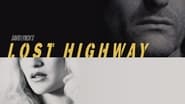ChanBot
i must have seen a different film!!
Pluskylang
Great Film overall
Maidexpl
Entertaining from beginning to end, it maintains the spirit of the franchise while establishing it's own seal with a fun cast
Scarlet
The film never slows down or bores, plunging from one harrowing sequence to the next.
Osmosis Iron
If Mulholland Dr. is kind of like a dream, then this is a nightmare. It's similarly ambiguous and beautiful in it's own way. But it's also much more eerie, creepy and at times downright scary... fans of Mulholland will probably also appreciate this. Soundtrack is also awesome: Pumpkins, Manson and Rammstein among others!
dbinnews-36586
My 6th Lynch film. I think was his best. Most clear expression of his world/thoughts/feelings. For me art is about expressing what's up in your mind/your emotions, from that perspective this seems really good. Nice pictures, beatific atmosphere, and admittedly a unique movie. Keep it uppp
laurenroseziegler
Lost Highway is a perfect example of Lynch's "dream sequence" type films. The veil between past and present is very thin and creates a time loop where the pieces don't all fit together perfectly. Lynch explores a vast array of different sensory experiences ranging from strobe lights to a cacophony of chaotic jazz. This movie is a fantastic visual and audial experience.
l_rawjalaurence
Inevitably viewers, on seeing LOST HIGHWAY for the first time, might ask what on earth is happening; or perhaps try to look for symbols in order to decode what director David Lynch has to say about contemporary American - specifically Californian - society.Perhaps it might be better to approach the film on its own terms as a meditation on the fluidity of identity, where Fred Madison (Bill Pullman) is sentenced to death in the electric chair for the murder of his wife Renee (Patricia Arquette), and subsequently morphs into Pete Dayton (Balthazar Getty), who becomes involved with Alice Wakefield (also played by Arquette) and mobster Ed (Louis Eppolito). As the action unfolds, Alice morphs into Renee. Throughout the action a mysterious presence lurks, with a whitened face and forbidding air (Robert Blake); he ostensibly works for Ed, but he seems to be able to penetrate even the most private spaces.Lynch has chosen the most commonplace names for his two male characters to emphasize their ordinariness; they could be anyone we encounter in our daily lives. Nonetheless what happens within their imaginations is very different from their quotidian behaviors; they are both tortured souls either unable or unwilling to conquer the wild and often horrific promptings of their unconscious minds. Renee appears to be dead; but then she mysteriously resurfaces later on in the film. Alice at one point tells Pete "You will never have me," suggesting a male desire for possession that will never take place in a dystopian world.The "Lost Highway" of the title is frequently shown in point of view shot, as a vehicle travels up a deserted road at night, with only the road markings visible. This might be both physical as well as mental; a metaphor of the male protagonists' diseased minds as well as a representation of just how threatening a landscape can be, especially at night when there are no lights to illuminate the street.LOST HIGHWAY is the kind of movie that consciously resists interpretation, and justifiably so. It requires considerable attention on the viewers' part, not only to appreciate the subtleties of director Lynch's directorial technique, but to decode what is happening in a series of visually complicated sequences. It is the kind of film that demands repeated viewings - not necessary to "understand" it better, but to appreciate just how carefully Lynch constructs it.











